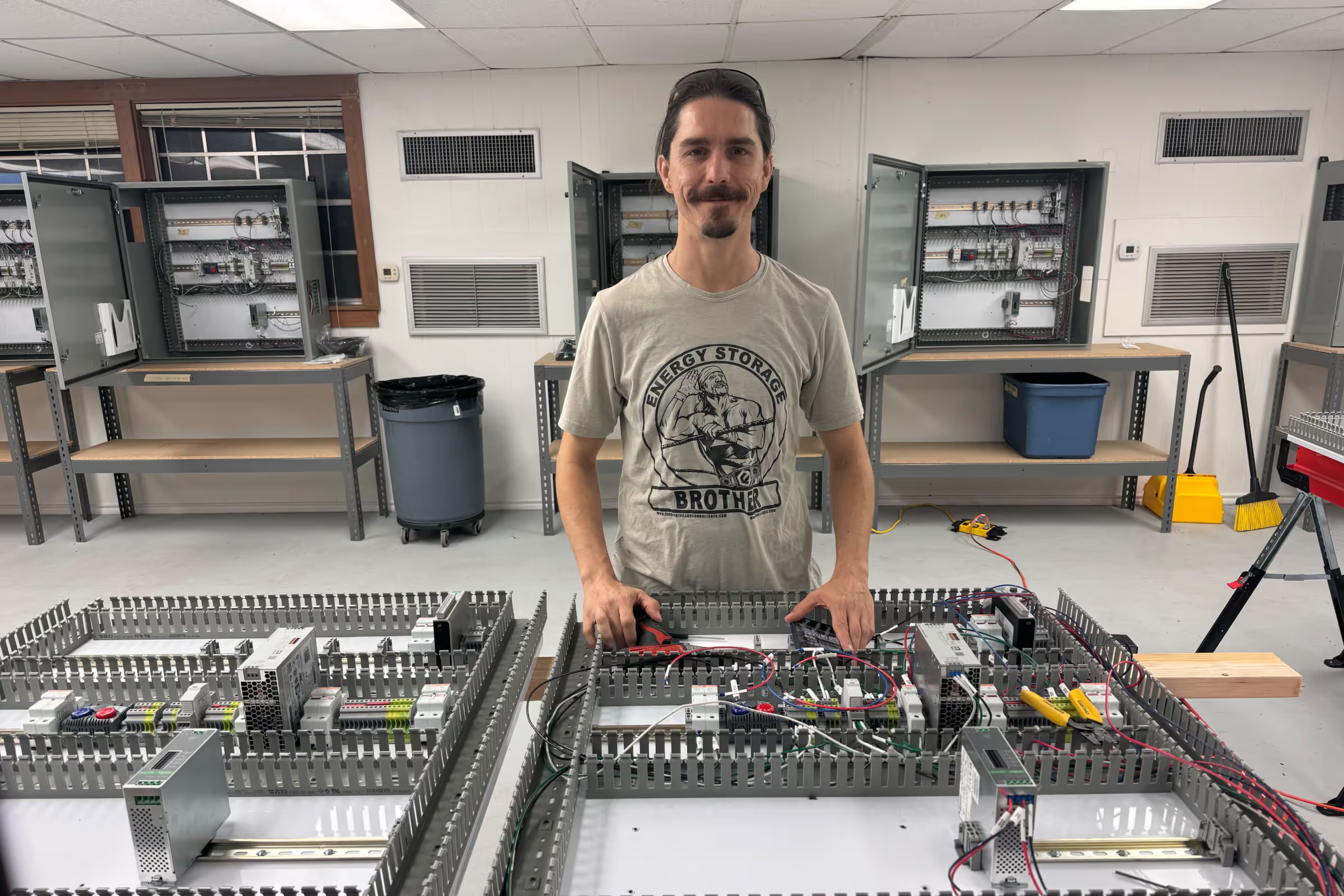How Control Panels Re-Wired My Brain (And My Life)


They kinda fixed my brain.
Let’s be honest - it takes a certain kind of person to go the shop every day, and it helps when there’s variety. Depending on the shop, panels can certainly provide that. I know from plenty of experience - building panels takes a ton of patience and perseverance. For me, it’s like building adult legos.
Before the Panels:
Before I got into panels, I always wanted to build cool things and work with my hands. I already did so by working in kitchens and being a long-time guitarist, but building panels gave me a new challenge with new mental rewards.
Brain Unlock Level 1:
When I left the kitchens, I started at Thermon Manufacturing first building hopper heaters and flex-panel heaters, then shortly after I got thrown into the panel shop. I was so confused at first. What did these things even do? What the heck is a terminal block? In my typical fashion, I was very slow to learn at first, just like in my kitchen jobs. I’ve always had slow rocky starts, and always initially gave off the impression that I wouldn’t make it. I am grateful to those who saw through that.
At that time, I had NO IDEA how widely panels were used across so many industries. At that job, most of the panels were similar or for the same equipment (heat trace). However, even in that particular niche, there were so many different kinds of panels to build and it never seemed that monotonous. I really enjoyed what I was doing.
Brain Unlock Level 2:
I later started working in the panel shop of a diverse automation company. I was introduced to PLCs, VFDs, and all kinds of stuff I hadn’t heard of. I remember asking my boss what the panels were for, and he just said “automation”. I had no idea what that meant and it was also a dumb answer. At this job, it seemed that none of the panels were ever the same. There were panels for PLCs and VFDs, pneumatic manifolds, simple power supplies, lighting, PoE cameras, water/wastewater, kiosks, just all kinds. Even though I was showing up to the same shop every day, my brain was lit up and on fire with all the new things I was learning. I was 100% hooked because I was happy with everything that I was learning. I would tell my bosses how grateful I was for the job.
Brain Unlock Level 3 and beyond:
Eventually this led to managing the panel shop, along with estimating, and later into sales. Today I’m so incredibly grateful that I have CJ Panel and Automation because that fire continues as I get to learn more and more every day. Now, not every day is about panels for me - it can be about sales, business building, managing, programming, designing a guitar pedal, writing a blog, or just getting closer to Jesus. But still to this day I am presented with panel opportunities for industries I haven’t worked in yet, components I haven’t heard of, panel/drawing challenges, new ways of wiring, tools, tricks, techniques, and accommodating for particular preferences. Now my favorite parts are getting to flex my knowledge in the shop when my colleagues come across challenges, and being stumped in front of everybody by something completely new. It happens all the time.
Thanks for reading!


